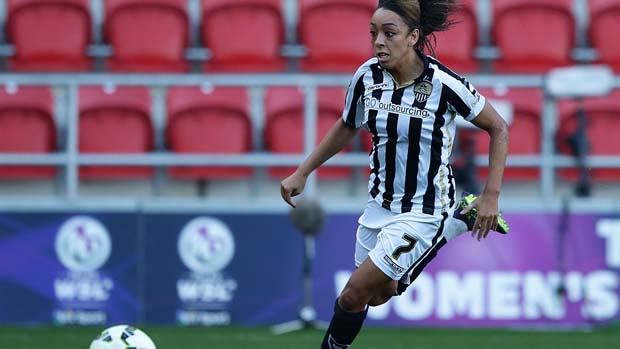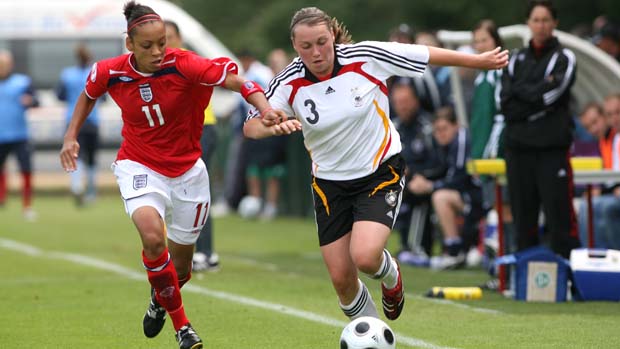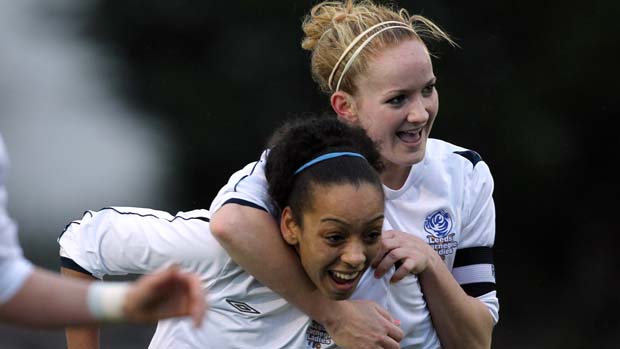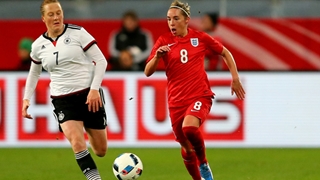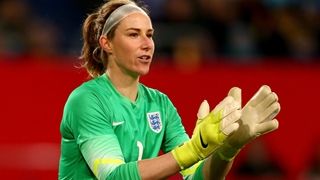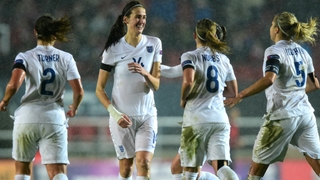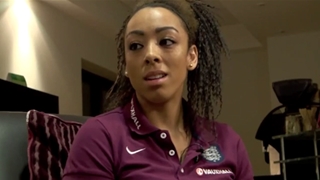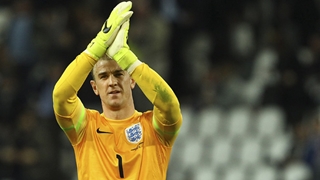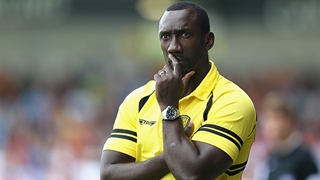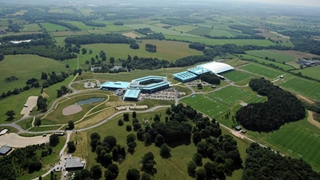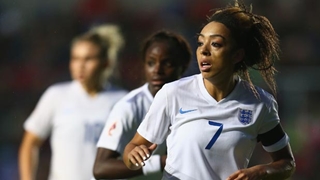
England and Notts County Ladies forward Jess Clarke will be forever grateful for the vision of her secondary school PE teacher.
12 years ago, Clarke’s only source of competitive football was playing in the schoolyard with the boys.
At the time, the Lionesses forward had little idea that a professional pathway for women’s football existed. That is until her teacher showed her an alternative route.
“I didn’t know girls played football and just thought I would go all the way through playing with the lads – my plans were to play for Manchester United with Ruud van Nistelrooy,” explains Clarke, with a smile.
“It was my PE teacher at high school, Lindsay Monroe, who pushed me to the next step of my career. I’ve still not had chance to thank her for everything that she did.”
Without the foresight of her teacher, Clarke would most likely have carried on practising on her own on the park and kicking the ball around the corridors of the block of flats in Leeds where she grew up. Opportunity has proved everything.
“When I started high school I had no idea how to progress [in the game]. My teacher was the one who said: ‘I’m going to get you trials at Leeds Ladies and I want you to be there at this time and at this place,’” explains Clarke.
“At the time, I had no funds and my mum couldn’t drive and sometimes didn’t have enough money to get me to places – so my teacher actually drove me to the trials for the first few sessions.
“Before my teacher left, she said to me: ‘I want to see you on TV playing for England one day.’
"If she hadn’t put me on that track, I definitely don’t feel like I’d be where I am today."
It is hoped Clarke’s teacher retained her interest in women’s football. Her former pupil recently achieved England cap number 52 in last week’s victory over Bosnia & Herzegovina in the Euro 2017 qualifiers.
Understanding the varied pathways players take in the game and how all those involved in a young player’s life – be it parent, teacher, coach, volunteer or friend – can help to create a positive experience of football, is the theme of this weekend’s FA National Coaching Conference, England DNA: Connecting The Game, at St George’s Park.
Clarke’s own journey in the game is all the more impressive given her relatively late arrival to a professional set-up. She admits her formative experience of the game mostly consisted of “a fly-away ball and a wall”.
“Every night after school I went on my own to the field to practice," she added.
"Sometimes my mum would go mad. It would get to 9 or 10pm and I knew I had school the next morning. She would be shouting out of the window. But all I ever wanted was ten more minutes.”
“I really feel like football has put me on the right path. I don’t come from the best area in Leeds and I grew up on some of the roughest estates. All I thought was football, football, all the time.”
Similar to England men’s goalkeeper Joe Hart – whose own development story will feature at the England DNA: connecting the game event – the Lionesses’ forward only really started to see a career path in the game when she was aged 15.
“I was 14 when I went to Leeds Ladies' centre of excellence. Before that, I had no formal coaching. The girls that I play with now say they had coaching aged 9 or 10 as well as playing for a girls’ team. I only started [professional coaching] when I was 15, which looking back is quite late,” admitted Clarke.
“I think you could tell I hadn’t had any coaching, all I used to do was dribble with the ball and I wouldn’t pass to anyone.”
The FA National Coaching Conference England DNA: Connecting The Game is held at St George’s Park from 4-7 December. Follow @StGeorgesPark for highlights from the conference.



